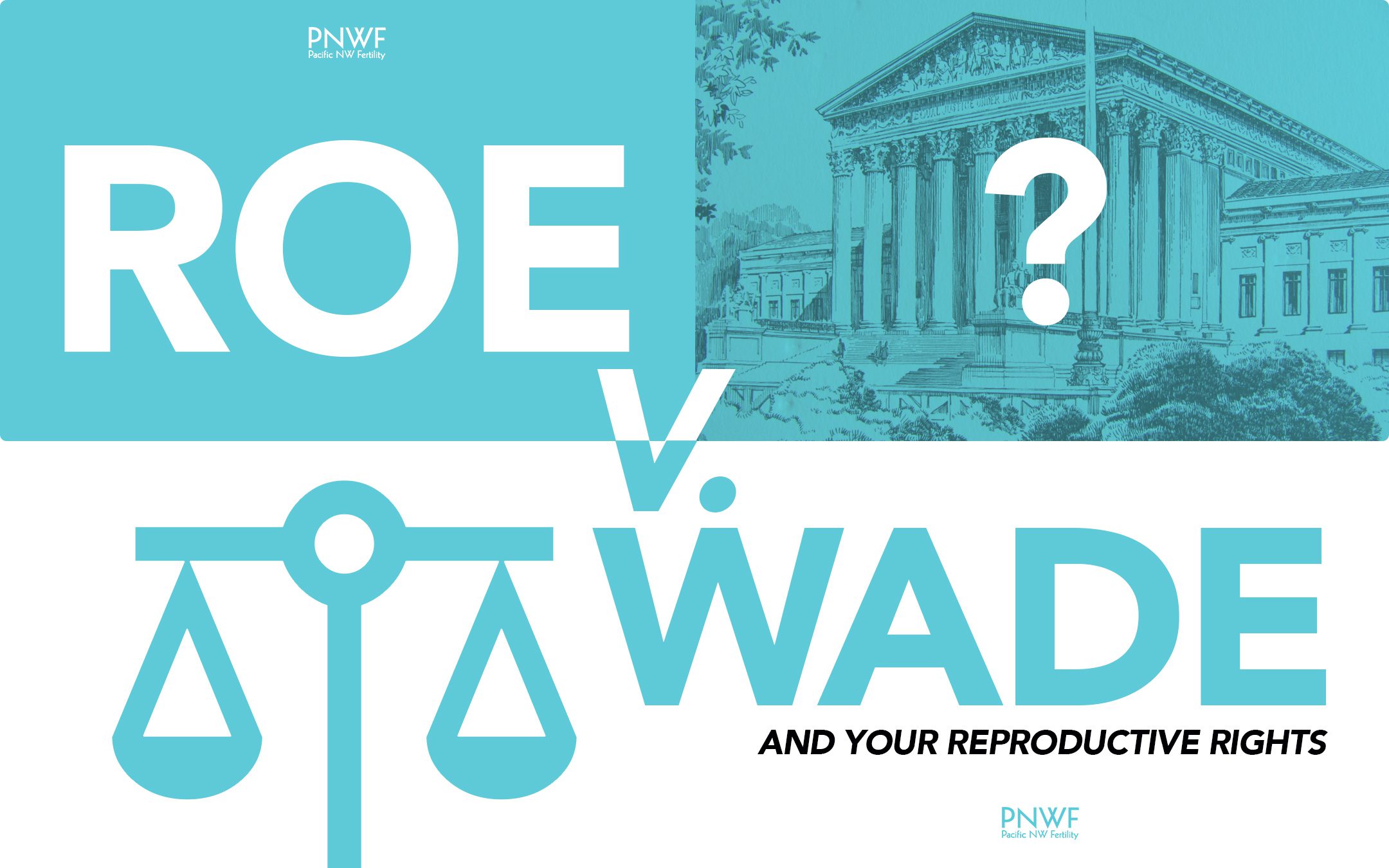PNWF’s statement on the Supreme Court decision regarding Roe v. Wade
The choice to become a parent is one of the most personal and meaningful decisions that many of us make in our lives. As fertility professionals, our work is rooted in our belief that every person should be free to decide if, when, and how to build their family. Our patients are the experts of their own lives, and we are here to guide, support, and empower them as they make their own choices.
At PNWF, we help build families and care for early pregnancies. These pregnancies are deeply wanted, often the result of months or even years of hard work and enduring hope. But when complications occur, we sometimes have to perform terminations for our patients’ safety. In the context of our work, abortion is an emotional, highly individual, and often medically necessary decision that must be made by the patient and physician.
We feel fortunate to practice in Washington State, which has emerged as a strong defender of reproductive freedom. Governor Jay Inslee has been a vocal proponent of the right to choose, recently partnering with Gavin Newsom (CA) and Kate Brown (OR) to form a multi-state commitment to protect reproductive rights. While many are troubled by the ruling’s implications for much of the country, we feel confident that the right to choose is safe in Washington.
Aside from abortion rights, this news has raised many questions about the potential impact on assisted reproductive technology. While this particular ruling does not include any specific verbiage establishing life at conception, the language in some proposed “personhood bills” could change the landscape of IVF treatment in certain states. This has not yet occurred and it is highly unlikely that Washington would be affected, but rest assured that we are watching closely.
While we do not anticipate that this decision will have an impact on our operations here at PNWF, we understand that every patient’s situation is unique and this news raises many questions. We have provided answers to some frequently asked questions below; please do not hesitate to reach out to your care team if you have any other concerns.
Frequently Asked Questions
What are the current abortion laws in Washington State?
Abortion for any reason is legal in Washington State until viability, generally around 24 weeks into pregnancy.
Why are people concerned about the impact of this decision on IVF?
Generally speaking, anti-abortion legislation has the potential to overlap with two aspects of fertility care: treatment of early pregnancy complications and limitations for the practice of IVF. Language in some proposed “personhood bills” could be used to argue against any treatment of embryos that could be interpreted as harmful, including embryo freezing, genetic testing, and disposition. These limitations on IVF are not currently in effect in any state, but it is a possibility in some states in the future.
If state leadership changes hands, could the right to choose be taken away in Washington?
Governor Jay Inslee is reportedly advocating for an amendment to the Washington State Constitution which would permanently protect abortion rights in the state, regardless of any changes in leadership. Without an amendment to the constitution, it is theoretically possible that the state legislature could ban abortion in the future, though unlikely. Washington has historically been a strong supporter of reproductive freedom.
That being said, Washington has a large and growing number of healthcare systems that are affiliated with the Catholic Church, and many of these institutions do not perform terminations. If that trend continues, access to abortion could become more difficult in Washington regardless of state laws.
Why are people saying IVF could become more expensive?
We do not anticipate that these changes will impact the cost of IVF at Pacific Northwest Fertility.
If laws go into effect that limit the practice of IVF, other changes could follow that could indirectly increase the cost of IVF in those states. One example would be limiting the number of eggs that can be fertilized with one retrieval, which would entail repeated charges to thaw and freeze multiple small batches of eggs. We do not anticipate that this would affect PNWF.
Care and Treatment at PNWF
If I have a miscarriage, can I still use misoprostol or receive a D&C?
Yes. These two treatments will remain available at Pacific Northwest Fertility and we don’t anticipate that that will change.
I live out of state and am interested in doing IVF at PNWF. Do I have to follow my own state’s abortion laws as a patient at your clinic?
Our clinic abides by Washington State’s laws regardless of the patient’s state of residence. Any additional fertility or pregnancy care they receive in their home state would be subject to their local laws and regulations.
Embryos
Are my embryos safe at PNWF?
Yes. Our embryo storage is safe and secure, and this ruling will not change how we handle, store, or dispose of embryos.
Can I still dispose of embryos, or do I have to implant all of them?
This ruling does not impact any of PNWF’s policies regarding embryo disposition. Our clinic’s recommendation is to implant one embryo for one healthy pregnancy at a time.
If I live in a state with restrictive abortion laws, should I transfer my embryos to a state with more permissive abortion laws?
The American Society of Reproductive Medicine does not currently recommend moving stored embryos in response to the ruling at this time.
Will this affect the availability of PGT/PGT-A testing?
Speculation that embryo disposition could be affected by abortion bans has led to concerns that embryo testing could be restricted. At this time, PGT and PGT-A testing are still available in all states, and we anticipate that they will remain available in Washington and at PNWF.
Collaborative Reproduction
I’m an egg donor. What does this decision mean for me?
This decision does not affect our policies or procedures with regard to egg donation.
Please be aware that some forms of long-term birth control are not compatible with egg donation, which may be an important consideration for prospective donors. Please contact our donor team at [email protected] with any questions or concerns.
I’m using a gestational carrier who lives out of state. What happens if they have a fetal abnormality and need a termination?
Any restrictions in the gestational carrier’s state of residence will apply to them. We recommend reaching out to your surrogacy agency if you have any questions or concerns.
As abortion restrictions go into effect, it is very important that the intended parents, gestational carrier, and agency proactively address any potential challenges in their legal contract. Intended parents may also consider state of residence as one of their criteria for choosing a gestational carrier.


